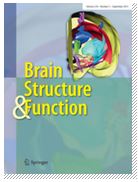Confirmation of the Neurobiological Origin of Attention-Deficit Disorder
[Source: Medical News Today]

A study, carried out on mice, has just confirmed the neurobiological origin of attention-deficit disorder (ADD), a syndrome whose causes are poorly understood. Researchers from CNRS, the University of Strasbourg and INSERM1 have identified a cerebral structure, the superior colliculus, where hyperstimulation causes behavior modifications similar to those of some patients who suffer from ADD. Their work also shows noradrenaline accumulation in the affected area, shedding light on this chemical mediator having a role in attention disorders. These results are published in the journal Brain Structure and Function.
Attention-deficit disorder affects between 4-8% of children. It manifests mainly through disturbed attention and verbal and motor impulsiveness, sometimes accompanied by hyperactivity. About 60% of these children still show symptoms in adulthood. No cure exists at this time. The only effective treatment is to administer psychostimulants, but these have substantial side effects, such as dependence. Persistent controversy surrounding the neurobiological origin of this disorder has hindered the development of new treatments.
Read the Rest of this Article on Medical News Today
PediaStaff is Hiring!
All JobsPediaStaff hires pediatric and school-based professionals nationwide for contract assignments of 2 to 12 months. We also help clinics, hospitals, schools, and home health agencies to find and hire these professionals directly. We work with Speech-Language Pathologists, Occupational and Physical Therapists, School Psychologists, and others in pediatric therapy and education.
